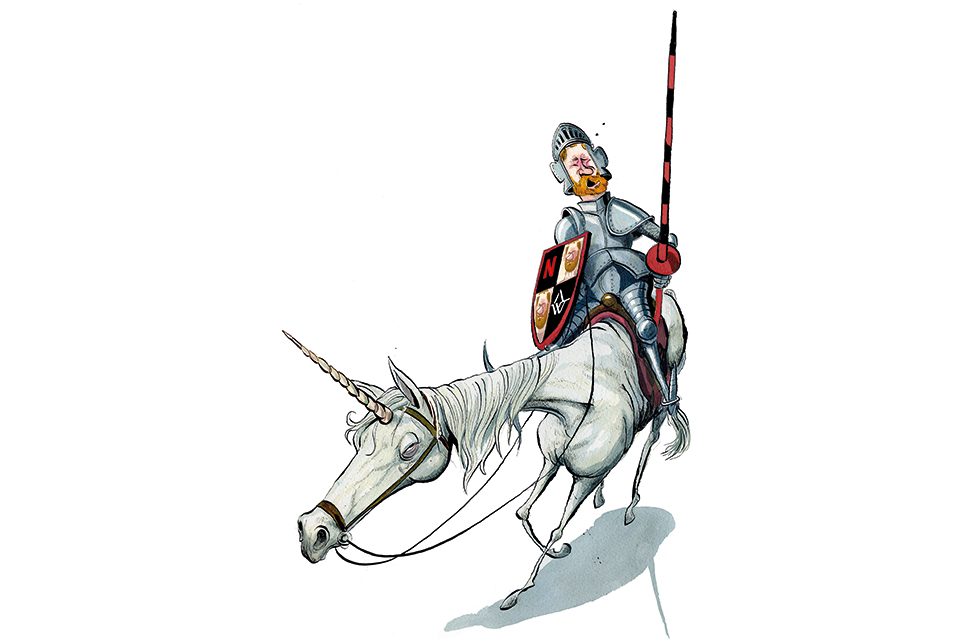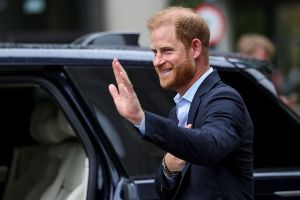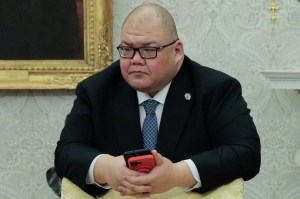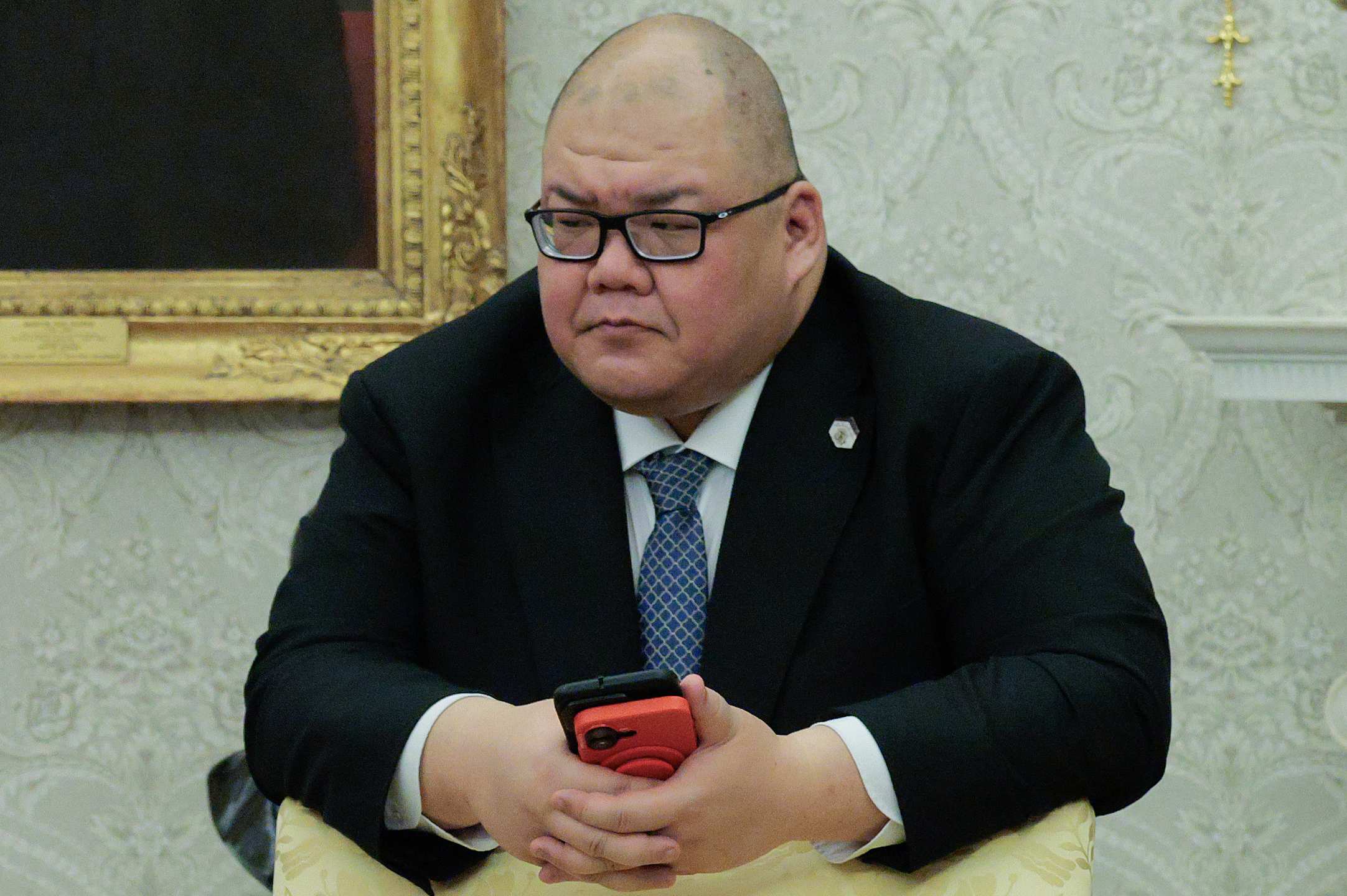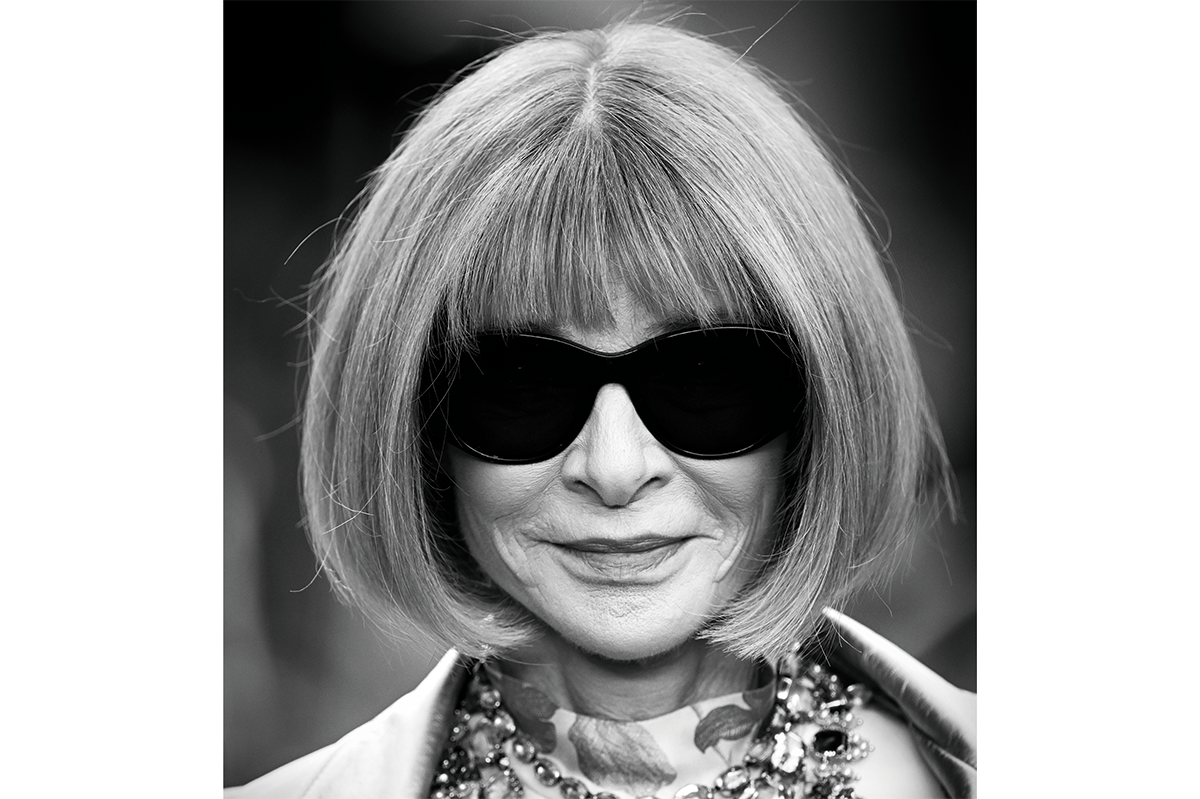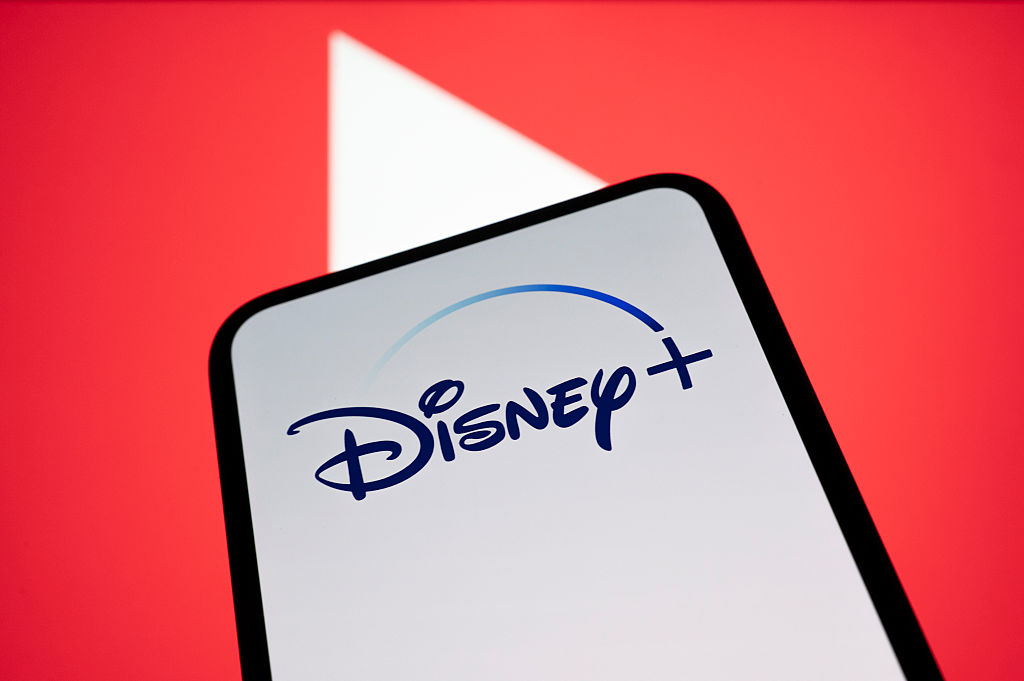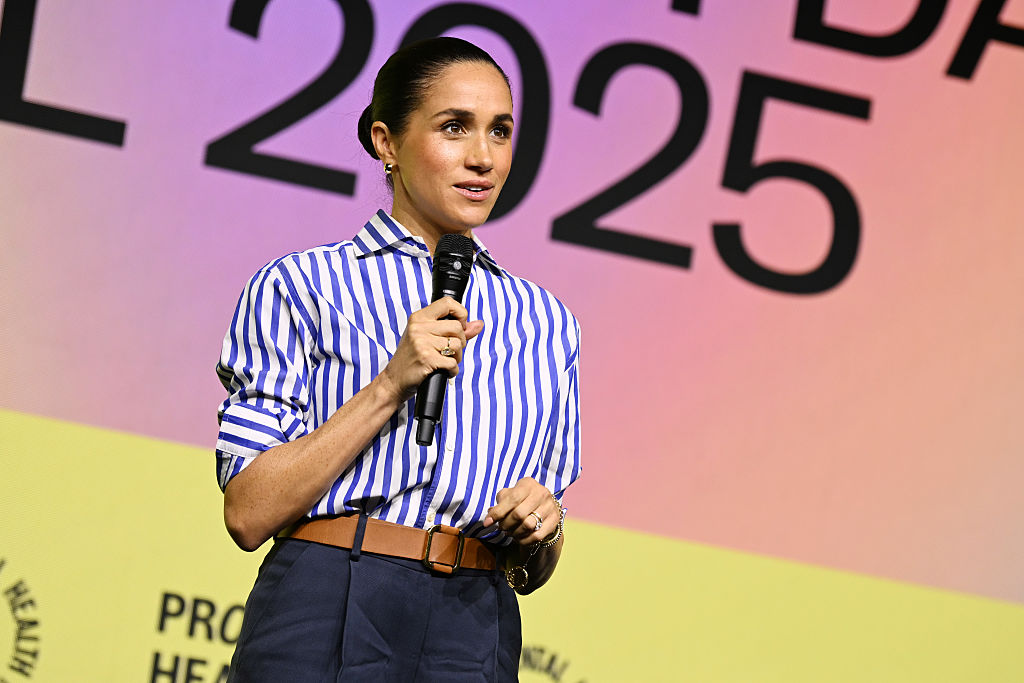Self-pity is one hell of a drug. On Tuesday, a day late, Prince Harry appeared in the UK High Court to “give evidence” against the Mirror, a British tabloid newspaper. The only testimony he was willing to provide, however, was his familiar gloop about the pain he suffered growing up rich, famous and royal. He can’t help himself, poor boy, and we should probably stop indulging him. We won’t, though.
In a forty-nine-page witness statement, the Duke of Sussex tried once again to make peace with himself by blaming the press for everything. “You start off as a blank canvas while they work out what kind of a person you are and what kind of problems and temptations you might have,” he declared. “I ended up feeling as though I was playing up to a lot of the headlines and stereotypes that they wanted to pin on me mainly because I thought that, if they are printing this rubbish about me and people were believing it, I may as well ‘do the crime’.”
It’s not my fault, Your Honor — the media made me this way. Harry admits to suffering from paranoia. It’s possible he thought that he must be the one on trial — after all, on the same day, across the pond, an American federal court was considering whether his visa application should be made public, given that he has admitted to taking drugs.
What’s more likely is that, in his egotism, Harry has come to regard any kind of publicity, even an appearance in a civil court case into phone-hacking, as a therapeutic exercise — another chance to talk through his demons and air his many grievances. It doesn’t work, of course, because the reason Harry needs so much therapy is because of all the publicity he’s received. He’s hooked in what psychoanalysts call a “negative reinforcing loop.”
What’s certain is that Harry is being terribly advised. His legal team appear to be taking him for a royal ride. He has been enlisted as just the latest star character in a show set by media lawyers, who for the past ten years have been feasting on a staggering amount of money from hacking fees. The tabloids have tended to pay up rather than go to court, writing huge checks to hundreds of celebrities and their hangers-on.
The Sun alone has been paying out an average of £100 million ($124 million) a year for the past ten years. “Eighty-five percent of the money has gone to the lawyers,” says one senior source at News UK. That would mean 1,065 of Murdoch’s millions have gone to the lawyers. To keep the money pouring in, the law firms need to recruit claimants to say they were hacked. Shake the tabloids’ cage, they’ll pay up.
In this case, however, the newspaper group has not settled. The matter has gone to court, and a legal trial demands a higher standard of evidence from the plaintiff. It’s far from clear that Harry is passing the test. Under cross-examination from the Mirror’s lawyer, Andrew Green KC, he seemed at times shockingly uninformed about the evidence he himself had submitted to the court. Harry is used to telling “his truth” to biddable journalists such as Tom Bradby on ITV or Anderson Cooper on CNN. When challenged about the more difficult matter of “the truth” by a leading attorney, his recollections fell apart.
Consider, for instance, the story of Harry breaking his thumb playing soccer at school, which the Mirror reported on November 11, 2000. In his witness statement, Harry said that “the level of detail [in the report] is just surprising,” suggesting that the paper must have intercepted his private communications. What other explanation could there be?
Green then asked Harry if he had ever expressed any concerns to the Press Association, a news agency, about the injury to his thumb. “I have not,” replied Harry, adding that he was unaware that PA had reported the story first. Green also asked if he had complained to other papers who had reported the “thumbgate” story, including the Edinburgh Evening News. “No I haven’t, because it’s not systemic within the Edinburgh Evening News, I believe… unlawful information gathering.” Why did he think that? He later admitted he “didn’t even know there was an Edinburgh Evening News.”
Or take the birthday party story, which the Mirror reported on September 16, 2002 under the headline “No Eton trifles for Harry.” In his statement, Harry admitted that he had already been “obliged” to describe his birthday celebrations in an interview “which had been repeated in this article… although I am not sure how much of it is reported here.” Inevitably, the claim collapsed under the slightest scrutiny. When Green put it to Harry that he was the source of the information reported in the Mirror, he flubbed: “I see the similarities, of course,” he said, before adding defensively that the timing was “suspicious.”
It was also pointed out to Harry that a three-line story in the Mirror about him becoming a parade commander at Eton cadets was not in fact obtained through skulduggery (as he claimed) but had been announced in a palace press release the day before. Harry fell back on the same word: “suspicious.” What is more peculiar is that he is convinced (or has been persuaded) that such a story is a good example of possible hacking.
On his first day in court, Harry told Green: “There’s a difference between public interest and what interests the public.” It is a line he also used in his witness statement because he thinks it is clever. Yet he became a blank canvas again when asked what he thought might constitute a public interest story: “I’m not sure, other than speculating,” he said. “A life-threatening injury. I’m sure there are others.” He’s clearly given the matter a lot of thought.
None of this is to say that the Mirror didn’t snoop on Harry’s calls. The paper has admitted to and apologized for hacking on its front page. It has paid £100 million ($124 million) in settlements and legal fees. But the prince was not sent in to court with any proof: just a catalog of suspicions and petty grievances. “I was often teased as a result of this article,” he says, on the thumb story. “I was a bit of a laughing stock,” he says, in relation to the Mirror’s report that he had caught glandular fever. “I was extremely worried I was going to be expelled,” he says about the story that he was using drugs while a pupil at Eton.
Which brings us to the real story behind the stories: the complaints of the Duke of Sussex and other celebrities against various newspaper groups aren’t about phone-hacking per se. They’re about making very well-paid lawyers even richer and enabling angry famous people to sue media companies to smithereens to placate their rage while convincing themselves that they are making the world a better place. In fact, the celebs are relitigating the past: there is no allegation of newspapers hacking after 2011.
Harry is no longer a working royal. His attempts with his wife to branch into the entertainment industry through Netflix shows and books have not made him more popular, to put it mildly. But he’s now discovered what he feels is his true vocation: to be the chief antagonist of the vile British press. Earlier this year, promoting his book on ITV, he said that he was “moving the mission of changing the media landscape in the UK from being personal to my life’s work.”
His father, he revealed, had warned him that this was “a suicide mission” — but brave, self-liberated Harry is not afraid. “Having spent ten years in the army,” he added, “I learned a set of values, and if I see wrongdoing I will be lured towards trying to resolve it… I have seen behind the curtain.” What he has perhaps not seen is that he has arrived on this battlefield fifteen years too late. The News of the World has closed, the guilty have been punished.
There is something tragicomic about Prince Harry’s crusade. It’s Don Quixote meets Fear and Loathing in Montecito. He keeps jousting with the tabloids, cheered on by sycophantic aides who puff up his vanity and his addled notions of honor, duty and love. But everybody else can see that the soldier-duke is deluded.
The public acknowledges the trauma Harry suffered as a child, of course. People sympathize with the grief he feels for his mother. But as Harry and his wife keep fishing for empathy in ever more deranged ways, that pity turns to revulsion. After Harry and Meghan attended an award ceremony together in New York last month, for instance, an unnamed spokesman for the couple issued a headline-grabbing statement claiming that, on leaving the event, they had been involved in a “near catastrophic” car chase with the press for two hours. Anybody who has ever driven through Manhattan instantly spotted the hyperbole: “relentless pursuit” is simply not possible in the center of that city. Why did the spokesman so conspicuously try to evoke the memory of Diana’s death?
It’s often the people most obsessed with “fake news” who talk the most trash. Two years ago, Prince Harry accepted a job with the Aspen Institute as a “commissioner on information disorder” — a syndrome from which he seems to be suffering acutely. His hatred of the press is pathological. In his memoir Spare, he calls journalists “ghouls” and “jackals.” “Centuries ago, royal men and women were considered divine,” he writes, with a telling resentment. “Now they were insects. What fun, to pluck their wings.”
Blinded by animus, Harry cannot see that the Great Tabloid Supremacy has always been something of a myth. People have never been so gullible as to believe every thing they read. And if the press barons — the Murdochs, the Maxwells, the Rothermeres — did once wield a power so great as to make them almost unaccountable, that time is over. That sort of influence now rests with the tech chiefs — Musk, Zuckerberg, Bezos and co — and even they don’t know what to do with it.
Harry is telling himself (or has been told) that he’s bringing newspapers to heel. In truth the press is already on its knees: the Sun now sells about 700,000, a fraction of its sales in its heyday. The Daily Mirror’s circulation is vanishing too. Gallant Harry didn’t slay these giants. The internet did.
At least Don Quixote had a sidekick in Sancho Panza. Harry seems a lonelier figure these days. He jets from his children’s birthday parties across the Atlantic to London to appear in court or attend the coronation alone. After the publicity blitz — and critical panning of — the Harry & Meghan show on Netflix, Meghan seems to be ploughing her own media furrow once more: she’s filed a trademark for “the Tig 2.0,” a possible reboot of the lifestyle blog she wrote before she met her prince.
Maybe Harry and Meghan are learning something a lot of married couples understand: working together is hard when it’s all me me me.
This article was originally published in The Spectator’s UK magazine. Subscribe to the World edition here.



